In December 2014, Bharti Airtel, India’a largest telecom operator tried to pull off a scheme that would have shaken up the Indian Internet as we know it : 243 million users (internet stats by 2014) would have had to shell out extra money (by four times to be specific) every time they made Voice calls over the Internet (VoIP) while using facilities such as Skype and Viber.(Rs. 0.37/minute = Rs. 75 for 75 MB)
Social media exploded with it’s usual panache as people expressed their extreme displeasure on the subject. A petition protesting the move even made it to Change.org (yours truly is a signatory). They also agreed to withdraw after making sure the Telecom Regulatory Authority of India held a consultation on the same (more on that below).Though this ridiculous plan hasn’t been brought up again, this entire hullabaloo brings forth a very important topic to the fore : Net Neutrality.
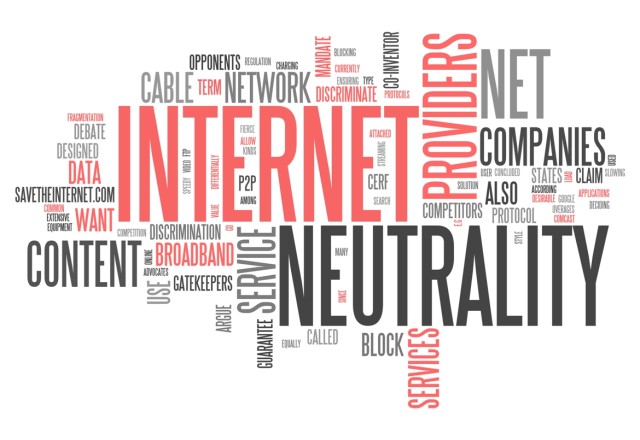
WAIT, WHAT ?
The official definition for net neutrality goes something like this – ‘ Net neutrality is the principle that service providers will .’ Geddit ? Basically, all it’s saying is that when you go on the Internet, it doesn’t matter whether you’re accessing www.youtube.com or www.funnycatvidoes.net. ISPs are obligated to provide you with :
- Equal accessibility to all websites
- Cost of accessing websites to be the same
- Sites to be accessible at the same speed.
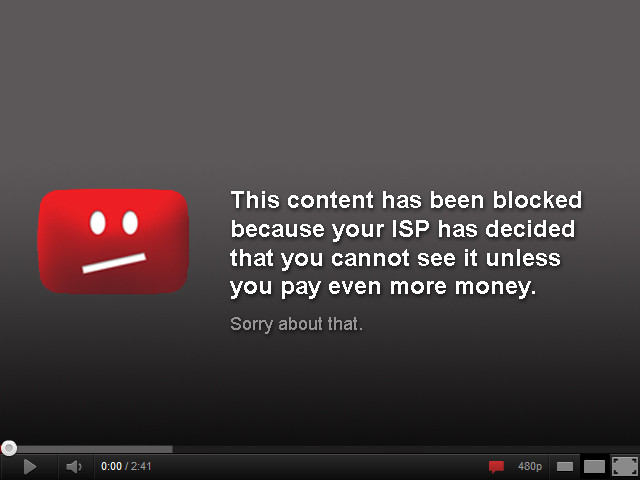
So not only do you have to pay more, the fledgling entrepreneur trying to set up www.isleepalot.com (this is an unused domain, by the way) will also be paying more to get his/her content across to you.
USA : THE LAND OF THE BRAVE, THE FREE AND CRONY CAPITALISTS
The fight for a free Internet has heated up in America. And it’s because the FCC (Federal Communications Commission) signaled in January 2014 that it could impose new laws that gives Internet Service Providers the right to charge content providers (the websites you access) to provide quicker access to customers.This is possible because Internet Service Providers(ISPs) in the USA, like in the rest of the world, are
- extremely few in number and have thus
- formed something of a monopoly.
So they’ve pooled together their resources in order to lobby the FCC for measures that will help them jack up their profits, curtail content that portrays them in a bad light and block competitors.
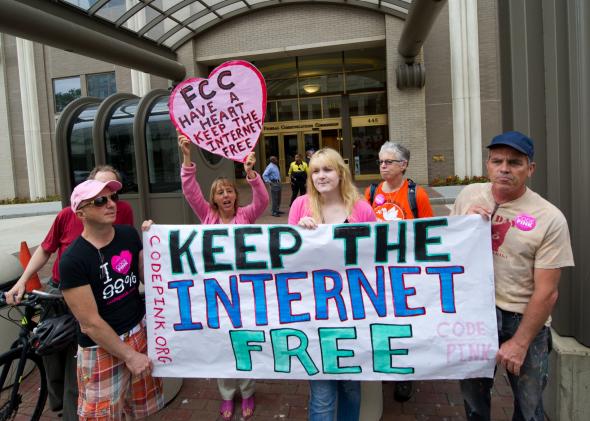
Lobbyists of the ISPs in question have tried to defend this move by claiming that there would be no ‘fast lane’ and ‘slow lane’ for web traffic, rather something along the lines of a ‘fast lane’ and ‘faster lane’.
Clearly the supporters of the free Internet were not amused and the folks at Fight for the Future have launched an all out, battle for the freedom of the Internet . Unsurprisingly, even Internet biggies such as Netflix and Facebook have joined the fight. Guess everybody wants to keep their profits.
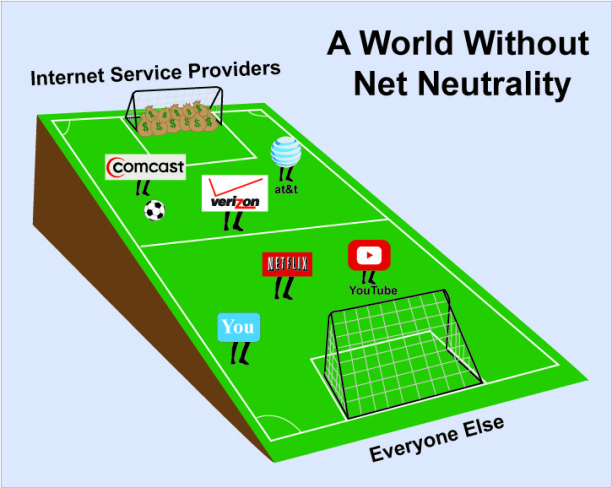
What happens next ? The vote determining the future of net neutrality in the USA is scheduled to take place on 26th February. The outcome will be an important precedent for the fates of Internet users around the world.
PS – Obama happens to be huge supporter of net neutrality. It was a part of his manifesto when he ran for President.
THE INDIA STORY
Which brings us to India. The author hopes that unfortunate practice of aping certain Western traditions mindlessly will not lead to something along the lines of the ghamsan yudh going on in the USA.The Airtel story differs slightly from the US one, as in our case, the distinction was between two types of Internet services. But the fact remains that the concept of net neutrality needs a lot more clarity in India.
The Telecom Regulatory Authority Of India (TRAI) has decided to float a paper to finally address this issue. They’ve also made it clear that since our country has its own “socio-economic systems, the terms within which this issue is to be defined is to be uniquely designed.” Well then kind sirs, this blogger requests that you not become slaves to corporate propaganda.
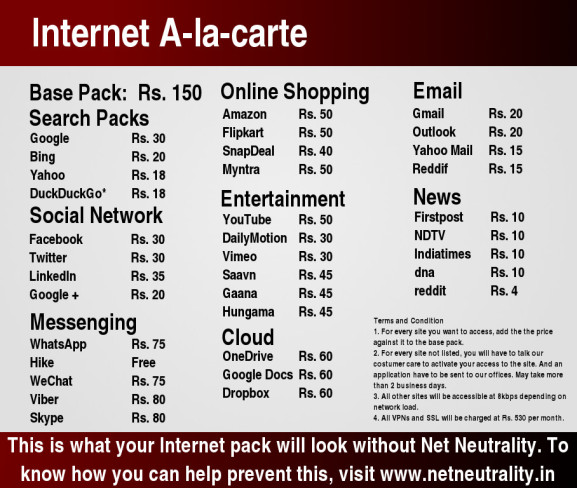
BUT
- Airtel’s One-Touch-Internet, which provides free access to 12 selected webites (Facebook, YouTube, IndiaToday to name a few) is definitely working around the current loopholes in the framework.
- Similarly, for Idea and Aircel users, Facebook usage is not taken into account while calculating the data limit.
- Before you riot in front of the Airtel office for trying to force the VoIP plan on you, fun fact, Vodafone and Idea were considering it too. They stopped only after seeing the public backlash.
- If the TRAI doesn’t come up with a neutral consultation, corporates can even start pushing for other services such as Instant Messaging (IM), Cloud Services etc being considered as ‘payable’.
WHERE DO WE GO FROM HERE ?
It’s very uncertain. I would recommend however, that you watch the final vote in America carefully to get an idea. Pro neutrality laws have been formulated only in Chile, Brazil, the Netherlands and Slovenia till now. Europe also, remains clueless.To all those who want to know more about the issue and how they can contribute, go see www.netneutrality.in for more. Let’s raise our voices together for the one thing we really care about in life: the Internet as we know it.
– By Gauri Gaur































